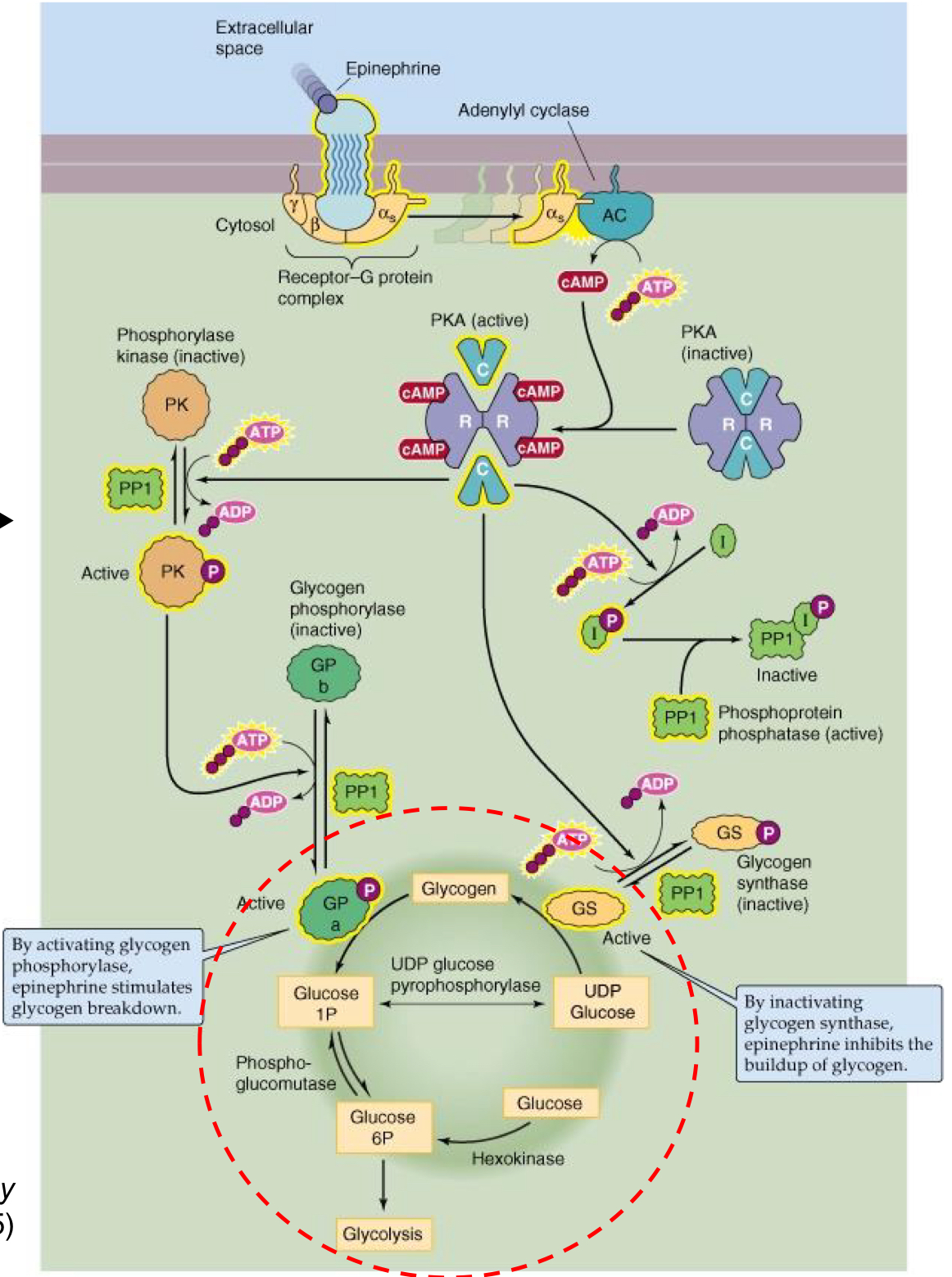Explain the biochemical pathway involving epinephrine and glycogen metabolism.

Understand the Problem
The question is asking for an explanation or breakdown of a biochemical pathway involving epinephrine, its interaction with various enzymes, and the overall process of glycogen metabolism.
Answer
Epinephrine leads to glycogen breakdown via cAMP and PKA activation, stimulating phosphorylase and inhibiting synthase.
The biochemical pathway starts with epinephrine binding to receptors, leading to the conversion of ATP to cAMP by adenyl cyclase. cAMP activates PKA, which phosphorylates phosphorylase kinase and glycogen synthase, promoting glycogen breakdown and inhibiting its synthesis.
Answer for screen readers
The biochemical pathway starts with epinephrine binding to receptors, leading to the conversion of ATP to cAMP by adenyl cyclase. cAMP activates PKA, which phosphorylates phosphorylase kinase and glycogen synthase, promoting glycogen breakdown and inhibiting its synthesis.
More Information
Epinephrine increases glucose availability by promoting glycogenolysis. It behaves similarly to glucagon in liver cells but mainly affects muscle tissue via β2-adrenergic receptors.
Tips
A common mistake is confusing the roles of phosphorylase kinase and glycogen synthase in glycogen metabolism.
Sources
- Glycogen Metabolism - an overview | ScienceDirect Topics - sciencedirect.com
- 15.3: Glycogenolysis and its Regulation by Glucagon and Epinephrine - bio.libretexts.org
AI-generated content may contain errors. Please verify critical information